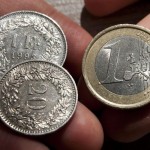Gold rebounded on Friday from the 34-month low it hit during the Asian session after marking the worst quarterly loss since nine decades. However, gains remained capped as the U.S. economy showed further consistent recovery signs yesterday, supporting Feds intentions to wind down its monetary easing program.
On the Comex division of the New York Mercantile Exchange, gold futures for August delivery traded at $1 202.75 per troy ounce, marking a 0.73% daily loss. Prices ranged between days high at $1 211.25, near previous close at $1 211.60, and days low of $1 180.35, lowest level since August 2010. The precious metal settled 1.8% lower yesterday and is so far marking a weekly loss of more than 7%. Last week, gold settled 6.80% down.
Upbeat U.S. data published on Thursday pressured gold prices as speculation once again arose the economy is recovering in line with Feds expectations, which was the requirement for a deceleration of the central banks monetary easing program. The Department of Labor reported yesterday that Initial Jobless Claims mismatched projections of a 10 000 decrease by 1 000. The number of people who filed for unemployment assistance in the U.S. last week fell to a seasonally adjusted 346 000, compared to the previous period’s 355 000 revised reading, but slightly above projections of 345 000. Personal Income for May surpassed expectations of 0.2% and surged to 0.5%, up from April’s revised 0.1% figure. Personal Spending for May met anticipations at 0.3%, well above the preceding month’s revised reading of -0.3%. Core PCE (Core Personal Consumption Expenditures) met projections both on monthly and annual basis. Core PCE for May stood at 0.1%, up from April’s 0.0% and was 1.1% higher than May 2012.
This offset Wednesdays disappointing final Q1 GDP reading, which didnt have that much of an impact on gold in the first place and the bearish sentiment remained intact. Gold has fallen 28% this year and is en route to its first annual decline since 12 years as it lost its appeal as a storage of wealth. The precious metal has been fluctuating in accordance to shifting expectations of a premature deceleration of Feds monetary stimulus, which are spurred especially by key economic indicators mismatching their projections.
Ben Bernanke announced last week that the central bank won’t scale down its monetary easing program just yet, but that is highly possible to happen within the end of the year, if the needed stable recovery signs are provided. According to Bernanke, Fed’s moves are tied to what happens in the economy and the central bank has no fixed plan, sentiment points at reducing bond purchases. Bernanke said that if the economy continues to improve in line with Fed’s projections, it would be “appropriate to moderate the monthly pace of purchases later this year”, and end the program as the unemployment rate drops to 7%, which Fed expects to happen around mid-2014.
Alexandra Knight, an economist at National Australia Bank, said by phone for Bloomberg: “Weve had quite a lot of positive data out of the U.S. and people are still focused on the tapering of stimulus, so gold’s been hit quite hard. There’s definitely been a loss of confidence in gold and that’s seen in the ETF liquidations. There’re still people who are interested in gold but because prices have fallen so much and so rapidly, they’ll wait for some stabilization.”
Elsewhere on the precious metals market, platinum and palladium are marking daily losses, while silver advanced. Silver traded at $18.853 per ounce at 8:13 GMT, up 1.62% on the day, paring an earlier drop to $18.183, the lowest level since August 2010. Days high stood at $18.928. The metal has lost around 34% this quarter and nearly 38% in 2013, rendering it the worst performing commodity.
Meanwhile, platinum for October delivery traded at $1 327.35 per troy ounce at 8:17 GMT, up 0.13% on the day. Prices ranged between days high and low at $1 329.95 and $1 296.10 respectively. The metal has fallen 17% this quarter.
Palladium September futures also fell, standing at $647.60 an ounce at 8:16 GMT, trimming 16% this quarter. The precious metal lost 0.46% on the day, varying between $650.10 and $634.20.
Investors are now looking ahead into next weeks Non-Farm Payrolls that will bring further information about the U.S. economic recovery and Quantitative Easings future.





